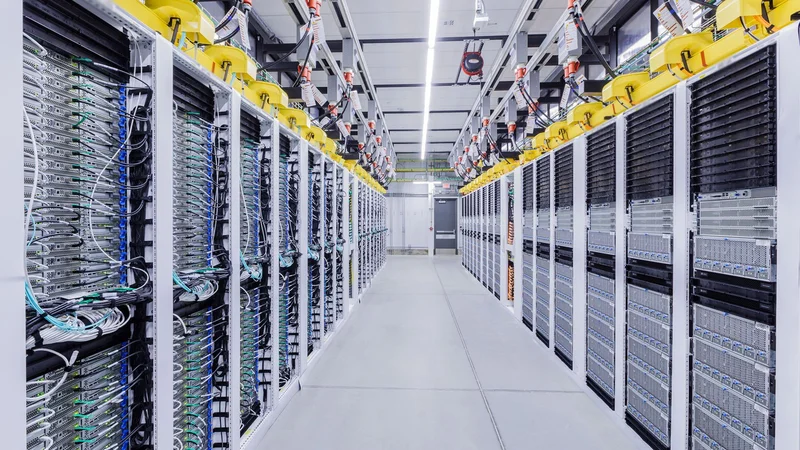Let’s call this what it is: a shakedown. A polite, Silicon Valley-style shakedown, wrapped in the language of civic commitment and corporate responsibility, but a shakedown nonetheless.
The story, as pieced together from reports like OpenAI’s promise to stay in California helped path for IPO, WSJ reports, is almost laughably simple. OpenAI CEO Sam Altman sits down with California Attorney General Rob Bonta. Bonta’s office is sniffing around, conducting an investigation into OpenAI’s… let’s call it a metamorphosis. The little non-profit caterpillar that was supposed to save humanity was suddenly looking a lot like a for-profit monarch butterfly ready to make a whole lot of people obscenely rich.
So, Sam, in his infinite benevolence, makes a promise. He tells Bonta he wants OpenAI to stay right here in sunny California. He’s committed to the Golden State.
You have to admire the artistry. That’s like walking into a store, putting a Ming vase on the edge of the counter, and telling the owner you’re “committed to not letting it fall.” It’s a threat delivered with a smile. The unspoken part hangs in the air, thick and heavy like the Bay Area fog: ...as long as you don’t get in my way.
And what happened? The investigation was dropped. The path was cleared. Give me a break.
This was never really about a non-profit. That was the cover charge to get into the party. It was the feel-good origin story that let them attract talent and build a god-like technology while telling everyone it was "for the benefit of all humanity." It’s a brilliant play, one that tech has perfected over the decades. You start with a mission statement that sounds like it was written by a UN committee, and you end with a stock ticker.
The switch from a non-profit to a "capped-profit" entity, and now the maneuvering to become a more traditional company, isn't a pivot; it was always the destination. This is a bad idea. No, 'bad' doesn't cover it—this is a five-alarm dumpster fire of corporate evolution that we’ve all seen before. It’s the inevitable, cynical lifecycle of a world-changing idea. It’s born in a garage with ideals, and it dies in a boardroom with shareholder value.
The whole "capped-profit" thing was a clever piece of misdirection. It’s like a casino promising you can only lose a certain amount of money. It sounds responsible, but you’re still in a casino, and the house always wins. Now, it seems even that cap is getting in the way of the real prize. The real prize, offcourse, is the public market. Everyone wants to know the `OpenAI IPO date` because that’s the day the Monopoly money turns real. This chat with Bonta wasn’t about state loyalty; it was about clearing legal turbulence before the plane takes off.

So what was this investigation even about? The details are fuzzy, which is always convenient. Was Bonta’s office concerned about the original charter? About fiduciary duties being abandoned in the sprint for commercialization? We don’t really know. But does it even matter now? A quiet conversation in a sterile room, maybe the faint hum of an air conditioner in the background, was all it took to make it go away.
This isn’t just a story about OpenAI. It’s a story about where the power actually sits in 2024. It ain’t in Sacramento. It’s in the glass-and-steel towers of Silicon Valley.
A state’s Attorney General, the top law enforcement officer, essentially folded after a single conversation. What was he supposed to do, realistically? Call Altman’s bluff and risk one of the most valuable and influential companies on the planet packing up for Texas or Nevada? Can you imagine the headlines? The political fallout? The sheer loss of tax revenue and prestige would be catastrophic.
Altman had all the leverage. He held the future of California’s tech dominance in his hands, and he knew it. This is the new feudalism. The tech lords don’t need armies; they have server farms and intellectual property. They don't need to conquer land; they just threaten to leave it. They’ve created a system where they are so integral to a state’s economy that they become immune to its regulations.
It leaves you wondering, what’s the point of having these oversight bodies at all? Are they just there to go after the little guys? When a company gets big enough, does it simply transcend the law? It seems the answer is yes, as long as they deliver their threats with a calm voice and a promise of staying put.
And we, the public, are just supposed to watch this happen and nod along, grateful that our tech overlords have decided to grace us with their presence, their jobs, and their eventual IPO riches that will benefit a tiny fraction of us. They expect us to believe this is all for our own good, and honestly...
Then again, maybe I'm the crazy one. Maybe this is just how progress works now. A series of backroom handshakes that pave the way for the next technological revolution, and the rest of us just have to trust that the guys in charge have our best interests at heart. Yeah, right.
Let's not sugarcoat this. A tech CEO held a state's economy hostage to kill a pesky investigation that stood in the way of his company's eventual IPO. And it worked. This isn't innovation; it's a boardroom coup. It proves that in the battle between democratic oversight and concentrated corporate power, the guy with the bigger balance sheet doesn't even have to raise his voice to win. Welcome to the future. It’s owned and operated by the same people who designed the present.